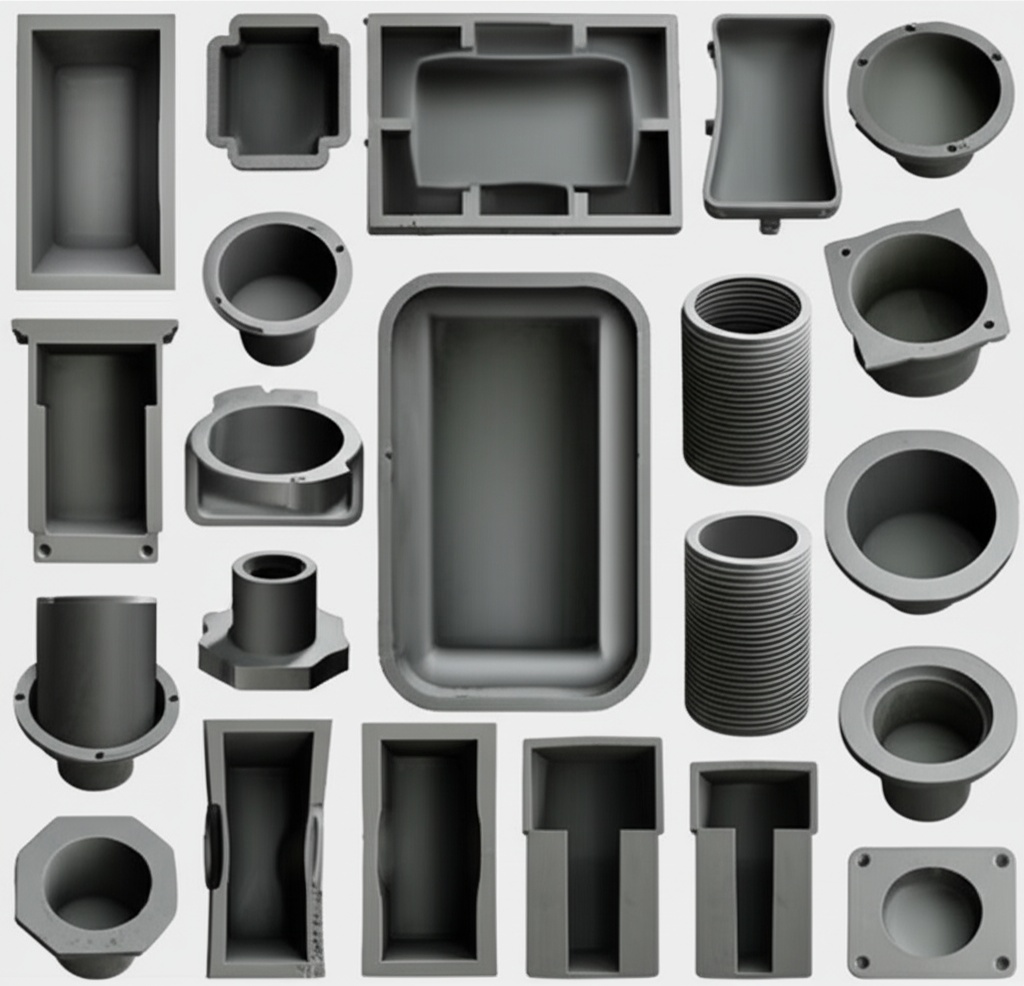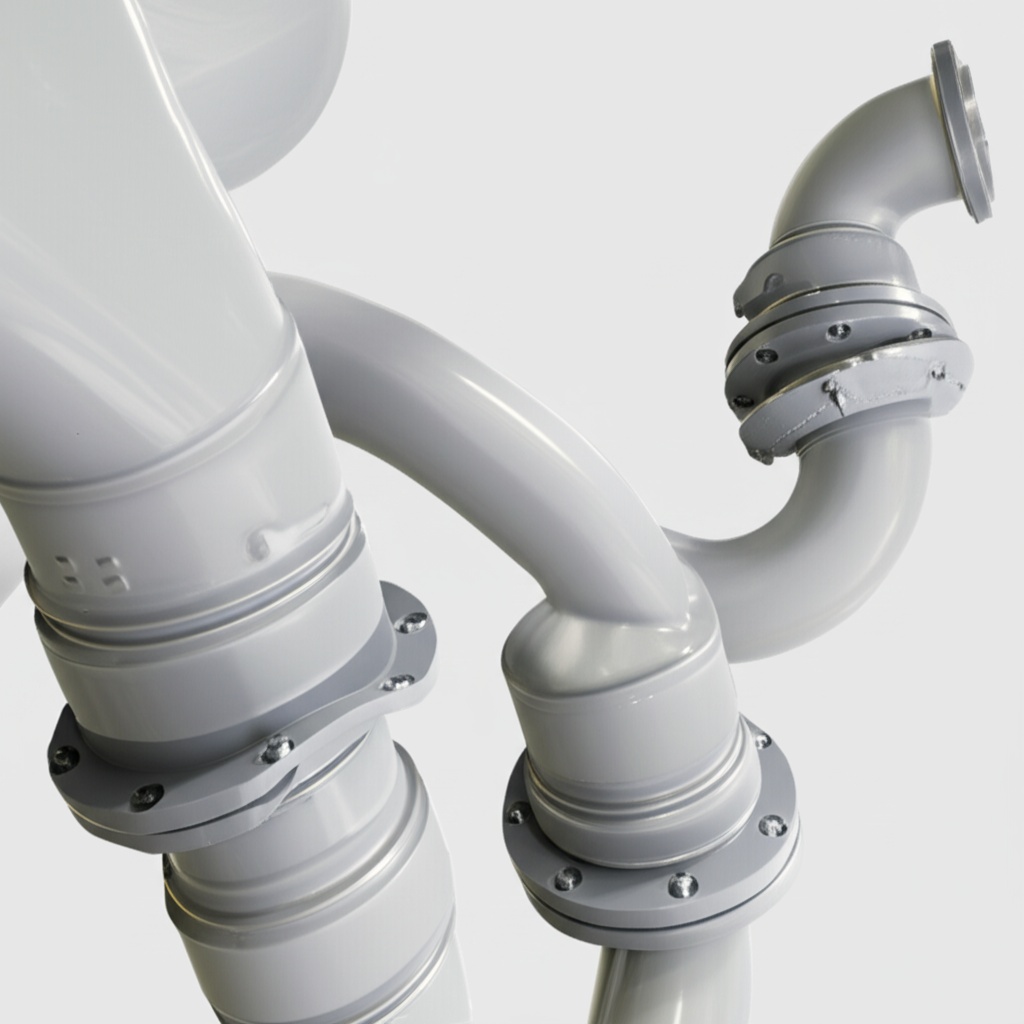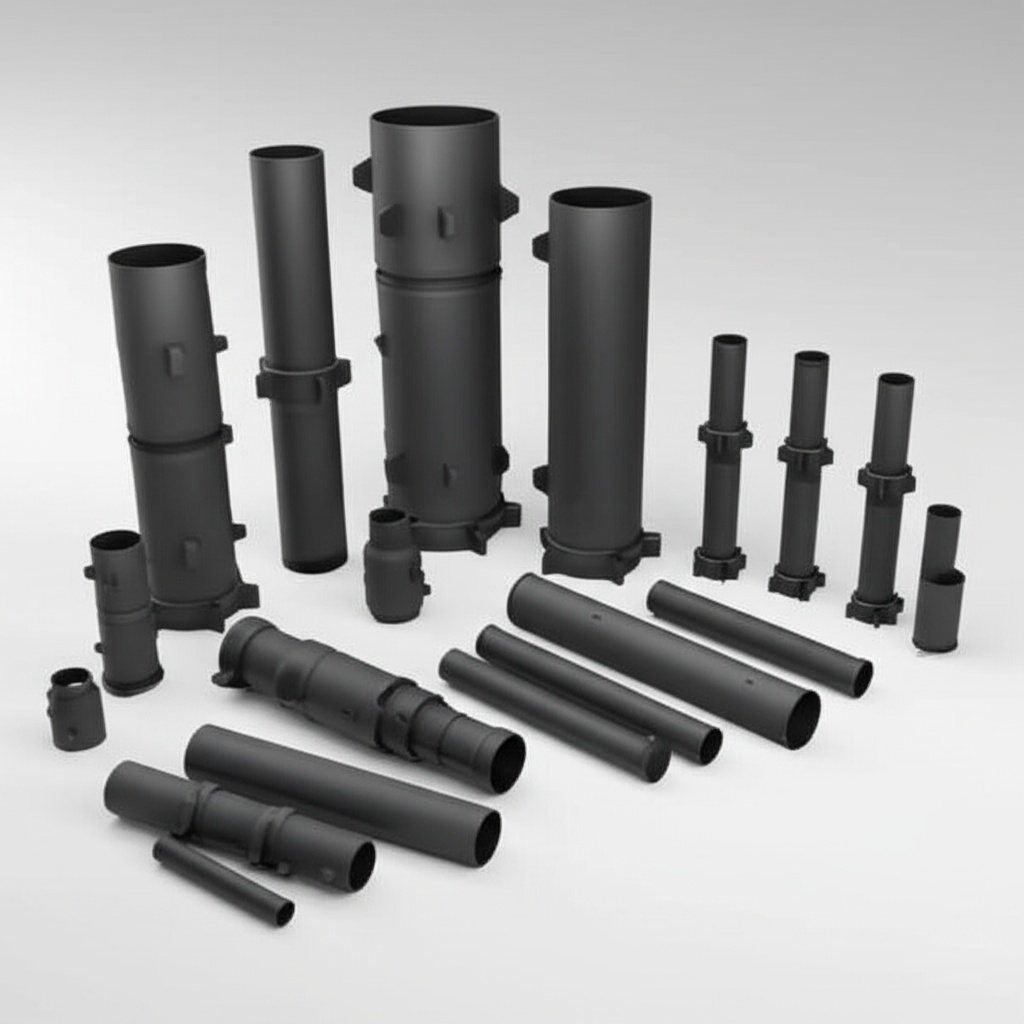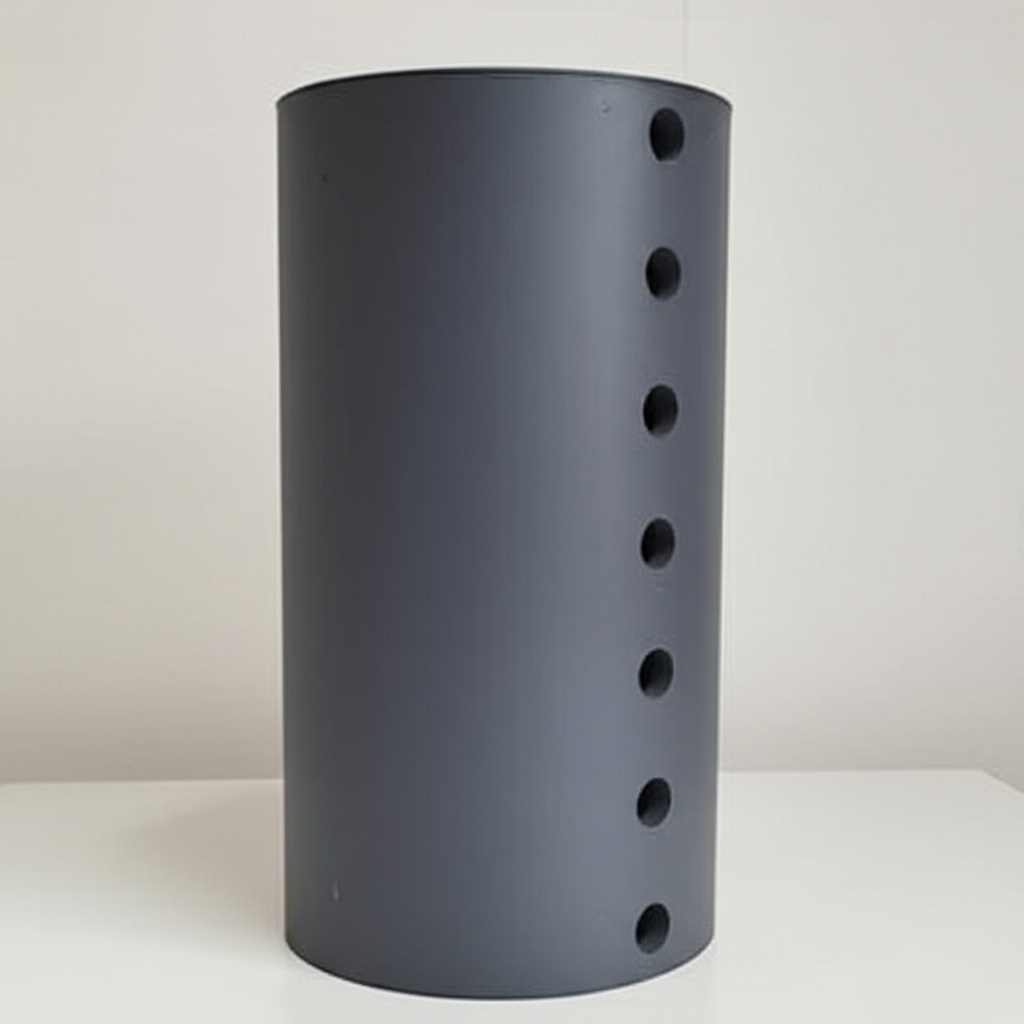Connecting with Reliable SiC Suppliers in Iran

Share
Connecting with Reliable SiC Suppliers in Iran
In today’s demanding industrial landscape, the need for materials that can withstand extreme conditions is paramount. Silicon carbide (SiC) stands out as a superior choice, offering unparalleled thermal, mechanical, and chemical resistance. This makes custom silicon carbide products indispensable across a wide array of high-performance industrial applications. From advanced semiconductor manufacturing to robust aerospace components, the unique properties of SiC are driving innovation and efficiency.
While the global market for SiC is vast, finding reliable silicon carbide suppliers in Iran who can meet specific, complex requirements is crucial for engineers, procurement managers, and technical buyers. This blog post aims to shed light on the advantages of custom SiC solutions and provide a comprehensive guide to navigating the procurement process, with a focus on connecting with trustworthy sources for these critical materials.
What are Custom Silicon Carbide Products and Why are They Essential?
Custom silicon carbide products refer to components and parts meticulously engineered from SiC to meet precise specifications for a particular application. Unlike off-the-shelf solutions, custom SiC leverages the material’s inherent strengths—exceptional hardness, high thermal conductivity, low thermal expansion, excellent chemical inertness, and impressive electrical properties—to deliver optimized performance in environments where traditional materials fail. These bespoke solutions are essential for achieving breakthroughs in efficiency, durability, and reliability in critical industrial processes.
Main Applications of Silicon Carbide Across Industries
The versatility of silicon carbide allows its integration into a diverse range of industries, each benefiting from its unique properties. Here’s a look at some key sectors:
- Semiconductor Manufacturing: SiC is vital for high-power devices, wafers, and various process equipment components due to its superior electrical properties and high thermal conductivity. It’s crucial for the development of next-generation power electronics.
- Automotive Industry: Used in electric vehicle (EV) inverters, on-board chargers, and other power modules to enhance efficiency, reduce weight, and improve range. Its high-temperature resistance is also valuable for braking systems.
- Aerospace and Defense: SiC finds applications in high-temperature components like jet engine parts, missile radomes, and structural components where lightweight, high-strength materials are critical. Its wear resistance is also beneficial for various moving parts.
- Power Electronics: Essential for high-voltage and high-frequency power devices, including diodes and MOSFETs, enabling more compact, efficient, and reliable power converters and inverters.
- Renewable Energy: Utilized in solar inverters and wind turbine converters to improve efficiency and reliability in energy conversion systems.
- Metallurgy: SiC is used in furnace linings, crucibles, and other high-temperature processing equipment due to its excellent thermal shock resistance and chemical stability.
- Chemical Processing: Its chemical inertness makes it ideal for pumps, valves, and heat exchangers handling corrosive media.
- LED Manufacturing: SiC substrates are used for epitaxial growth of GaN, which is crucial for high-brightness LEDs.
- Industrial Machinery: Components requiring high wear resistance, such as seals, bearings, nozzles, and grinding media, benefit from SiC’s extreme hardness.
- Telecommunications: SiC is used in high-frequency and high-power RF devices for telecommunications infrastructure.
- Oil and Gas: Employed in downhole tools and components exposed to abrasive and corrosive environments.
- Medical Devices: For instruments requiring biocompatibility, wear resistance, and the ability to withstand sterilization processes.
- Rail Transportation: Used in traction systems and power electronics for improved efficiency and reliability.
- Nuclear Energy: Investigated for use in fuel cladding and other components due to its radiation resistance and high-temperature stability.
Why Choose Custom Silicon Carbide? Advantages for Industrial Applications
Opting for custom silicon carbide over standard materials or components offers a multitude of benefits, particularly for demanding industrial applications:
- Exceptional Thermal Resistance: SiC maintains its mechanical strength and chemical stability at temperatures exceeding 1,500°C, far beyond the limits of most metals and plastics.
- Superior Wear and Abrasion Resistance: With a hardness approaching that of diamond, SiC components exhibit outstanding resistance to wear, erosion, and abrasion, significantly extending component lifespan.
- Outstanding Chemical Inertness: SiC is highly resistant to corrosion from a wide range of acids, alkalis, and aggressive chemicals, making it ideal for harsh chemical processing environments.
- High Thermal Conductivity: This property facilitates efficient heat dissipation, critical for high-power electronic devices and thermal management systems.
- Low Thermal Expansion: Minimizes dimensional changes under varying temperatures, contributing to excellent thermal shock resistance and dimensional stability.
- Tailored Performance: Customization allows for optimization of part geometry, surface finish, and material composition to perfectly match the application’s specific requirements, leading to enhanced performance and efficiency.
- Reduced Downtime and Maintenance: The extended lifespan and reliability of SiC components translate into fewer failures, less maintenance, and reduced operational costs.
Recommended SiC Grades and Compositions for Diverse Needs
Silicon carbide comes in various grades and compositions, each offering slightly different properties optimized for specific applications. Understanding these distinctions is crucial for selecting the right material:
- Reaction-Bonded Silicon Carbide (RBSC): Characterized by its high strength, excellent thermal shock resistance, and good thermal conductivity. It is produced by infiltrating a compact of SiC and carbon with molten silicon, which reacts with the carbon to form SiC.
- Sintered Silicon Carbide (SSiC): Known for its high purity, excellent mechanical strength, and superior corrosion resistance. SSiC is produced by sintering fine SiC powder with small amounts of sintering aids at very high temperatures.
- Nitride-Bonded Silicon Carbide (NBSC): Offers a good balance of properties, including good strength, thermal shock resistance, and oxidation resistance. It is formed by bonding SiC particles with silicon nitride.
- Recrystallized Silicon Carbide (ReSiC): A high-purity, coarse-grained SiC with excellent thermal shock resistance, often used for kiln furniture and high-temperature structural components.
- Siliconized Silicon Carbide (SiSiC): Similar to RBSC, it contains free silicon within the SiC matrix, which can enhance thermal conductivity and crack resistance.
The choice of grade depends heavily on the specific operating conditions, including temperature, chemical exposure, mechanical stress, and required electrical properties.
Design Considerations for Custom SiC Products
Designing with silicon carbide requires careful attention to its unique material properties to ensure optimal performance and manufacturability. Key considerations include:
- Geometry Limits: While SiC can be machined into complex shapes, intricate features, very thin walls, or sharp internal corners should be approached with caution due to the material’s hardness and brittleness.
- Wall Thickness: Maintaining consistent wall thickness whenever possible helps in uniform sintering and reduces the risk of warpage or cracking during processing.
- Stress Points: Design to minimize stress concentrations, especially at corners or transitions, by incorporating generous radii.
- Tolerances: Understand the achievable tolerances for SiC, which are generally tighter than for many metals but still have limits.
- Joining and Assembly: Consider how the SiC component will be integrated into a larger system, including methods for joining (e.g., brazing, adhesive bonding, mechanical fastening).
Tolerance, Surface Finish & Dimensional Accuracy
Achieving precise tolerances and optimal surface finishes is critical for the performance of custom SiC components. Advances in machining and finishing techniques allow for impressive accuracy:
- Achievable Tolerances: Depending on the size and complexity of the part, typical tolerances can range from ±0.01mm to ±0.1mm. Precision grinding and lapping can achieve even tighter tolerances for critical dimensions.
- Surface Finish Options: Surface finishes can vary from as-fired (relatively rough) to highly polished (mirror-like) depending on the application’s requirements for wear, friction, or sealing. Common surface roughness values (Ra) can range from several micrometers down to sub-micrometer levels.
- Dimensional Accuracy: Highly skilled manufacturers can consistently produce SiC components with exceptional dimensional accuracy, crucial for components in precision machinery and optical systems.
Post-Processing Needs for Enhanced Performance
After initial fabrication, custom silicon carbide parts often undergo post-processing steps to further enhance their performance, durability, and functional properties:
- Grinding: Precision grinding is essential for achieving tight tolerances and desired surface finishes on SiC components.
- Lapping and Polishing: These processes create extremely flat and smooth surfaces, critical for sealing applications, optical components, and bearing surfaces.
- Sealing: In some applications, especially those involving porous SiC grades, sealing might be necessary to prevent fluid penetration or enhance mechanical integrity.
- Coating: Applying specialized coatings can impart additional properties, such as enhanced oxidation resistance, electrical insulation, or specific surface chemistries.
- Cleaning: Thorough cleaning processes are critical to remove any contaminants before final assembly or use, particularly in semiconductor applications.
Common Challenges and How to Overcome Them in SiC Manufacturing
While silicon carbide offers remarkable advantages, its manufacturing presents unique challenges:
- Brittleness: SiC is inherently brittle, making it susceptible to chipping or fracture during machining and handling. Overcoming this requires specialized tooling, precise machining parameters, and careful handling.
- Machining Complexity: Its extreme hardness makes SiC very difficult to machine, requiring diamond tooling and advanced machining techniques like grinding, EDM (Electrical Discharge Machining for electrically conductive SiC), or laser machining.
- Thermal Shock: Although SiC generally has good thermal shock resistance, rapid and extreme temperature changes can still pose a risk, especially for complex geometries. Careful design and material selection can mitigate this.
- Cost: The raw materials and manufacturing processes for SiC are more expensive than for conventional materials. However, the extended lifespan and performance benefits often outweigh the initial cost.
- Quality Control: Ensuring consistent quality and detecting internal flaws requires sophisticated non-destructive testing (NDT) methods.
How to Choose the Right SiC Supplier
Selecting a reliable silicon carbide supplier is paramount to the success of your project. Look for partners who demonstrate:
- Technical Capabilities: Assess their expertise in SiC material science, design for manufacturability, and advanced machining techniques. Do they offer a range of SiC grades?
- Material Options: Ensure they can provide the specific SiC grade and composition best suited for your application.
- Quality Control and Certifications: Verify their quality management systems (e.g., ISO certifications) and their ability to provide material certifications and traceability.
- Experience and Track Record: A proven history of delivering high-quality custom SiC products to your industry is a strong indicator of reliability.
- Customization Support: Do they offer design assistance, prototyping, and the ability to scale production?
- Communication and Responsiveness: A supplier who is communicative and responsive to your inquiries is invaluable.
When considering global sourcing, particularly from regions known for their manufacturing prowess, it’s worth noting the significant advancements in China’s silicon carbide industry. Here is the hub of China’s silicon carbide customizable parts factories. As you are aware, the hub of China’s silicon carbide customizable parts manufacturing is situated in Weifang City of China. This region has become home to over 40 silicon carbide production enterprises of various sizes, collectively accounting for more than 80% of the nation’s total silicon carbide output.
We, Sicarb Tech, have been introducing and implementing silicon carbide production technology since 2015, assisting these local enterprises in achieving large-scale production and technological advancements in product processes. We have been a witness to the emergence and ongoing development of the local silicon carbide industry.
Based on the platform of the national technology transfer center of the Chinese Academy of Sciences, Sicarb Tech belongs to Chinese Academy of Sciences (Weifang) Innovation Park, an entrepreneurial park that collaborates closely with the National Technology Transfer Center of the Chinese Academy of Sciences. It serves as a national-level innovation and entrepreneurship service platform, integrating innovation, entrepreneurship, technology transfer, venture capital, incubation, acceleration, and scientific and technological services.
Sicarb Tech capitalizes on the robust scientific, technological capabilities and talent pool of the Chinese Academy of Sciences . Backed by the Chinese Academy of Sciences National Technology Transfer Center, it serves as a bridge, facilitating the integration and collaboration of crucial elements in the transfer and commercialization of scientific and technological achievements. Moreover, it has established a comprehensive service ecosystem that spans the entire spectrum of the technology transfer and transformation process. This translates to more reliable quality and supply assurance within China.
Sicarb Tech possesses a domestic top-tier professional team specializing in customized production of silicon carbide products. Under our support, 419+ local enterprises have benefited from our technologies. We possess a wide array of technologies, such as material, process, design, measurement & evaluation technologies, along with the integrated process from materials to products. This enables us to meet diverse customization needs. We can offer you higher-quality, cost-competitive customized silicon carbide components in China. View our recent cases to see our capabilities in action.
We are also committed to assisting you in establishing a specialized factory. If you need to build a professional silicon carbide products manufacturing plant in your country, Sicarb Techcan provide you with the technology transfer for professional silicon carbide production, along with a full range of services (turnkey project) including factory design, procurement of specialized equipment, installation and commissioning, and trial production. This enables you to own a professional silicon carbide products manufacturing plant while ensuring a more effective investment, reliable technology transformation, and guaranteed input-output ratio. Contact us today to discuss your specific requirements.
Cost Drivers and Lead Time Considerations for Custom SiC
The cost and lead time for custom silicon carbide products are influenced by several factors:
- Material Grade and Purity: Higher purity and specialized SiC grades generally command higher prices.
- Part Complexity and Geometry: Intricate designs requiring extensive machining or specialized forming processes will increase costs and lead times.
- Size and Volume: Larger parts require more material and machining time. Higher volumes can sometimes lead to economies of scale.
- Tolerance and Surface Finish Requirements: Tighter tolerances and finer surface finishes necessitate more precise and time-consuming post-processing.
- Post-Processing Needs: Additional steps like specialized coatings or extensive polishing add to both cost and lead time.
- Supplier’s Capacity and Location: The supplier’s current workload, production capacity, and geographical location can impact lead times and shipping costs.
Frequently Asked Questions (FAQ) about Custom SiC Products
Q1: What is the primary advantage of silicon carbide over traditional ceramics?
A1: The primary advantage is its superior combination of properties, including much higher thermal conductivity, excellent high-temperature strength retention, and significantly better wear resistance compared to traditional ceramics like alumina or zirconia, making it ideal for extreme industrial applications.
Q2: Can custom SiC components be used in corrosive chemical environments?
A2: Yes, silicon carbide exhibits exceptional chemical inertness and is highly resistant to a wide range of corrosive acids, alkalis, and aggressive chemicals, making it an excellent choice for chemical processing equipment.
Q3: How long does it typically take to get a custom SiC part manufactured?
A3: Lead times vary significantly based on part complexity, material availability, and the supplier’s production schedule. Simple parts might take a few weeks, while highly complex or large-volume orders can extend to several months. Early engagement with your supplier for design and planning is crucial.
Conclusion
Custom silicon carbide products are at the forefront of advanced materials engineering, offering unparalleled performance in the most demanding industrial environments. For industries like semiconductors, aerospace, power electronics, and high-temperature processing, investing in tailored SiC components translates directly into enhanced reliability, extended lifespan, and superior operational efficiency.
When seeking reliable silicon carbide suppliers in Iran or globally, prioritize partners with deep technical expertise, a proven track record, and comprehensive customization capabilities. By making an informed choice, you can leverage the full potential of custom SiC to drive innovation and gain a competitive edge in your respective industry.

About the Author: Sicarb Tech
We provide clear and reliable insights into silicon carbide materials, component manufacturing, application technologies, and global market trends. Our content reflects industry expertise, practical experience, and a commitment to helping readers understand the evolving SiC landscape.




